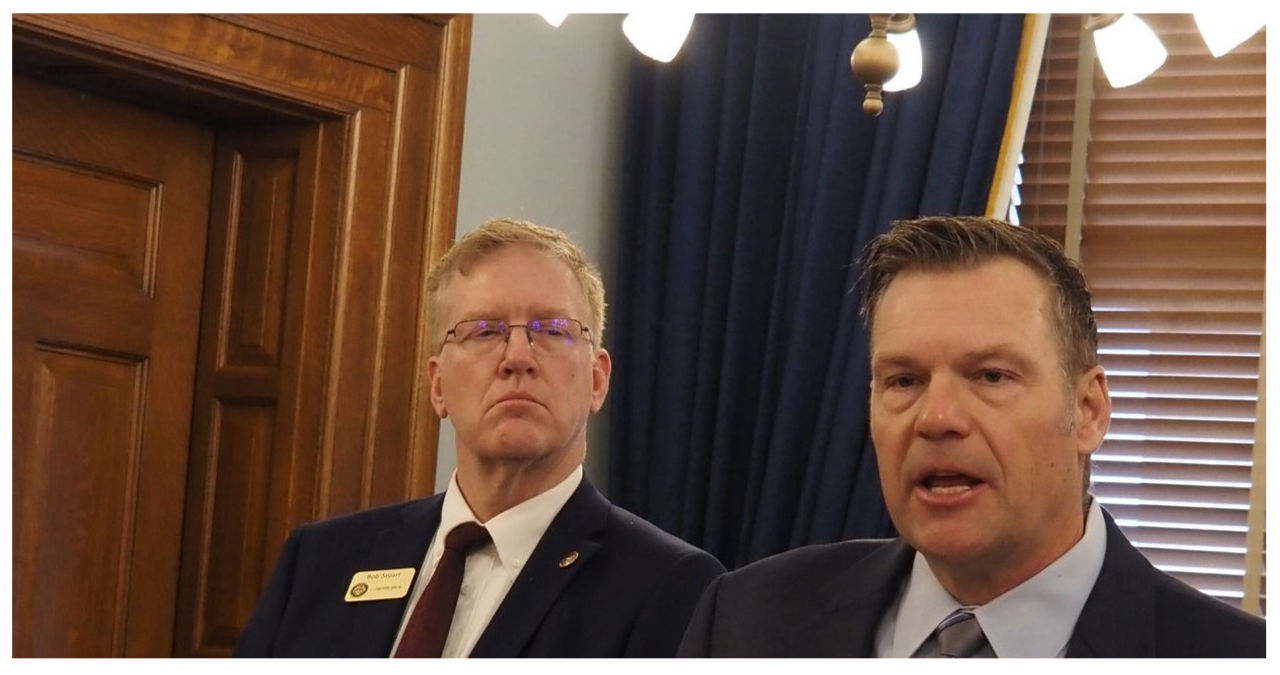Jamiesfeast – During a news conference held on February 6, 2024, Kansas Attorney General Kris Kobach unveiled a fresh initiative aimed at prohibiting foreign ownership of farmland in Kansas.
Kansas Attorney General Kris Kobach made a compelling case as he returned to the Statehouse, urging the Kansas Legislature to take immediate action and ban foreign land purchases within the state. Kobach expressed concerns that countries like China might exploit such investments to spy on and exert undue influence over the United States.
In an effort to address concerns over foreign ownership of land, a new bill has been introduced in the Senate. Senate Bill 446 aims to prohibit foreign individuals and corporations from purchasing land parcels that are three acres or larger. Additionally, the bill would impose restrictions on foreign land leases, limiting them to durations of less than two years. This legislation seeks to safeguard domestic land ownership and control over property resources.
During a news conference on Tuesday, Kobach emphasized that Kansas is the only state in the breadbasket region that has no restrictions or prohibitions on foreign nationals and foreign corporations buying land. He expressed concern that this open policy could potentially lead to negative consequences for the state.
Kobach argued that this change would effectively deter drug cartels from infiltrating the state.
According to Kobach, it’s not only China but also Mexican drug cartels that are involved in purchasing significant amounts of land in Texas, Oklahoma, and California.
Kobach admitted that providing evidence of cartel activity or foreign entities operating in the state is challenging due to the elusive nature of these activities and the lack of reporting.
Kobach has previously advocated for similar legislation, but none of the bills gained significant support.
The proposed foreign land ban includes the establishment of a state land council consisting of five members who would be responsible for reviewing requests for exemptions. This council would have the power to grant exceptions on a case-by-case basis. The members of the council would include the attorney general, the adjutant general, the governor, the secretary of state, and the director of the Kansas Bureau of Investigation, or their designated representatives.
Kansas State Senator Mike Thompson, who joined Kobach in supporting the bill, believes that this legislation provides a straightforward solution to safeguarding the interests of Kansans. At the same time, it also ensures that individuals from other countries who are genuinely beneficial to the state’s economy can still participate in land investments.
Thompson, who chairs the Senate Committee on Federal and State Affairs, has scheduled a hearing for the bill on Wednesday. According to Thompson, the rural areas are facing challenges due to the retirement of older farmers and the departure of young people, making them vulnerable to external risks.
According to Thompson, leaving vast areas of the state vulnerable to acquisition by opportunistic bad actors from countries that wish Americans harm is a significant concern.
Republicans at both the state and federal levels are increasingly directing their attention towards China as a global threat. This heightened concern has resulted in numerous states engaging in debates and enacting legislation aimed at imposing restrictions on foreign farmland purchases. However, despite these efforts, the true extent of foreign land ownership remains unclear and ambiguous.
According to a recent USDA report, foreign ownership of U.S. agricultural land amounts to more than 43.4 million acres, which accounts for 3.4% of all privately held U.S. agricultural land and nearly 2% of all U.S. land. The report suggests that China holds an estimated 346,915 acres, which is less than 1% of the total foreign ownership. However, it is important to note that China’s actual interest in U.S. agricultural land might be higher than reported due to filing classifications.
Thompson and Kobach both highlighted Cnano Technology USA as an illustration of the local results they aim to avoid. The company, based in China, intends to establish a $94.7 million manufacturing facility in Johnson County. This facility will produce liquid conductive paste utilized in various products, including cell phones and vehicle batteries.
Despite receiving approval from the county, there have been allegations made against the company suggesting that it has subversive connections. U.S. Representative Jake LaTurner, a Republican representing the 2nd District of eastern Kansas, has recently called for a federal investigation into Cnano.
In his news conference on Tuesday, Thompson cautioned against making similar moves.
“An insatiable desire for economic development without any vetting process whatsoever for nano at the county level, has led now to Kansas taxpayers supporting a Chinese-owned entity that’s inserted themselves into the industrial supply chain,” Thompson said. “It takes very little imagination to comprehend the dangers of that type of arrangement.”

